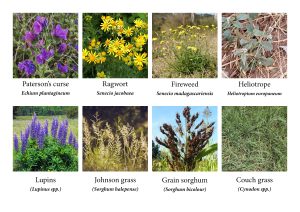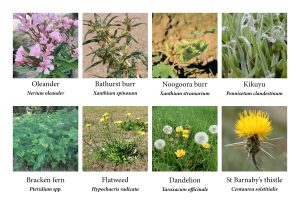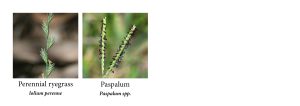In Australia , here are many plants that can be found in your horse paddock which can potentially cause serious harm to horses. Fortunately, horses will naturally avoid consuming vast amounts of poisonous plants however, some plant species may appear palatable and a small amount of a toxic plant may cause poisoning. Of particular concern is when little forage is available in your horse paddock, or horses have limited access to water as in these scenarios, horses are more likely to eat poisonous plants which they would customarily avoid. Poisonous plants can vary in toxicity seasonally and during different growth stages, while some are dangerously toxic at all times.
Risk factors for plant poisoning in your horse paddock
- Type of toxin (acute toxicity versus chronic toxicity)
- Stage of plant growth
- Time of year
- Climatic variables
- Fertilisers/ herbicides
- Age/ susceptibility of horse
- Part and amount of plant eaten
Symptoms of toxic plant poisoning
- Suppressed appetite
- Depression and/ or generalised weakness and lethargy
- Increased heart and/or respiratory rate
- Nervous signs (‘stringhalt’)
- Colic/diarrhoea
- Skin irritation and sensitivity to sunlight
- Muscle tremors
- Staggering/ in-coordination (‘Ryegrass staggers’)
- Head jerking
- Loos of condition
- Blindness
- Jaundice (yellowing of mucous membranes)
- Nutritional secondary hyperparathyroidism (‘big head’)
- Death
If you suspect plant poisoning
It is sometimes possible to save a horse’s life if rapid action is take, though in all instances, prevention is better than cure:
- Seek immediate advice from veterinarian, giving clear descriptions of symptoms
- Remove all horses from suspected poisonous plant area
- If known, give medical history and any recent changes in diet/pasture
- Check your feed and hay for mould or contaminating seeds/ leaves
- Retain a samples of the suspected offending plant/s for reference
Plant species of risk in your horse paddock



Prevention:
- Learn to recognise poisonous plants and when they are most dangerous
- Regularly inspect the pasture in your horse paddock to ensure it is a toxic plant free zone
- Check your fences are strong so that horses do not wander into unknown pasture
- Trim garden plants and use natural herbicides if necessary
- Ensure your animals are well fed, with access to water at all times
- Practice suitable grazing management to avoid proliferation of poisonous weed species
- Never feed lawn clippings in case they contain toxic garden leaves
- Appropriate disposal of toxic plant species
If you suspect your horse has consumed a poisonous plant, we advise you to call your local veterinarian immediately, for advice.
Experts in Equine Nutrition
Every product in the Ranvet range has been developed to meet a horse’s most specific need at any given time, be it in a training environment or on a breeding farm. Having pioneered the formulation of specific medications and dietary supplements for horses, the company is now recognised as a leader in the areas of equine health and nutrition.
